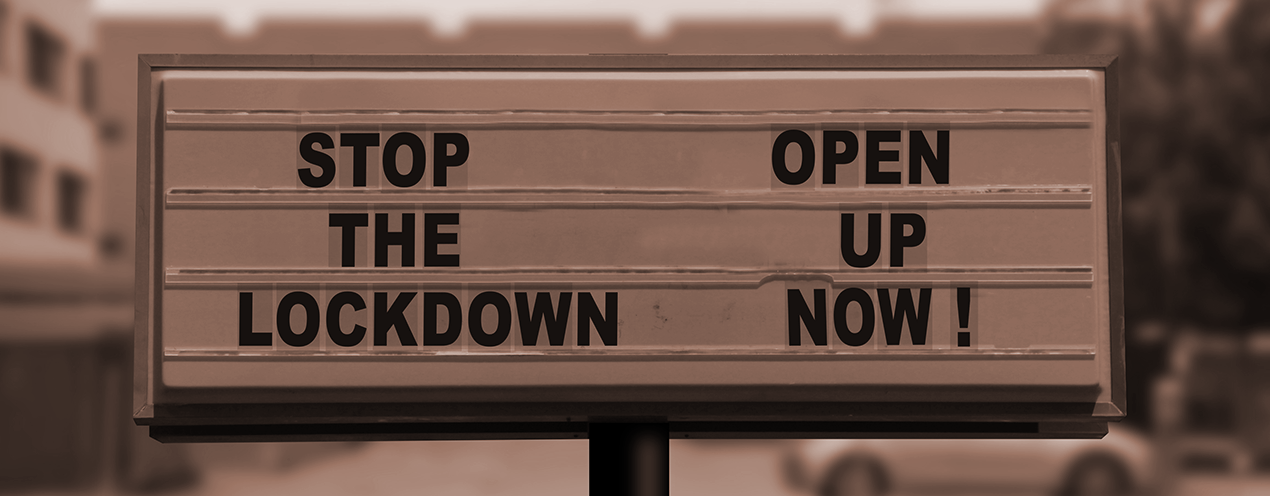
Which ‘emergency orders’ should we just start ignoring?
At what point do government mandates become so absurd and arbitrary, that it is socially acceptable to start ignoring them outright? Well, if governors keep acting the way they have throughout the coronavirus crisis, we might soon find out.
From the beginning, the response to the pandemic has been a dramatic demonstration of just how capricious and arrogant politicians can be when they are given sweeping emergency powers.
Determining what economic and social activities were “essential” was the first glimpse at just how arbitrary governors would behave in the months to follow. As the crisis lingered on, the ostensible “scientific” basis for their emergency actions has morphed into a cultish insistence that restricting freedom is the only way to inoculate Americans from the risks posed by the virus.
It’s a belief that has only worsened the capricious nature of the regulations being imposed.
For example, when restaurants, retail establishments and other businesses were initially allowed to open at half capacity in Nevada, Governor Sisolak nonetheless ordered that churches remain limited to a mere 50 worshipers at a time—regardless of the size of their facilities. What, precisely, was the “science” behind this decision? After all, there’s no rational basis for believing the coronavirus is somehow more contagious in a half-empty place of worship than it is in a half-empty restaurant.
So called “live entertainment” was likewise targeted by the governor’s office. And yet, when Gov. Sisolak was seen enjoying a night out at a restaurant with a live band, he explained that their performance was not a violation of his statewide ban on live entertainment, because patrons weren’t at the restaurant specifically to hear the musicians play.
“Ambient music, as it is called, where people do not go buy tickets to go to them, where people do not pay admission, where that’s not the purpose of the visit, is allowed in a restaurant,” Sisolak explained to Eater Las Vegas—as if a virus is somehow concerned with whether or not someone bought a ticket or paid an entry fee at the door.
Unsurprisingly, many establishments that had previously been targeted by government officials for violating the state’s ban on live entertainment have since gotten creative about marketing their live “ambient music” offerings. Maybe, if churches stop holding worship services on Sunday and simply provide “ambient preaching” instead, they too could skirt the arbitrary limits placed upon them.
Such creativity in an attempt to remain compliant with ever-changing and baseless rules has, unfortunately, become increasingly necessary in the age of coronavirus.
When Gov. Sisolak made it illegal for establishments to let patrons play video poker while seated at a bar, some tavern owners noticed that “freestanding” video poker machines, on the other hand, were still perfectly legal. And thus, businesses found a way to offer an environment that is virtually identical to the one Sisolak’s ban was designed to shut down. (With one notable exception: The poker machines ironically make social distancing more difficult, as they often crowd the room.)
Such examples demonstrate just how divorced from scientific rigor the governor’s continued shutdown orders truly are. After all, if keeping bars off-limits simply moves gamblers from the bar to the dining area, the rule is clearly doing little else than inconveniencing business owners and patrons. If the legality of live entertainment is determined by how it is advertised or whether ticket sales are involved, the governing regulation is clearly not rooted in the science behind fighting a contagion.
Unfortunately, regardless of how clownish their declarations might seem to the rest of us, governors tend to take themselves seriously—and they have the power to use the full force of state government to ensure compliance.
Which raises the question: At what point will the governor’s orders be so egregiously arbitrary, that civil disobedience is the last remaining tool available to people who have otherwise shown great creativity in their struggle to comply?
After all, businesses are being closed, livelihoods are being decimated, and futures are being destroyed—all because politicians and governors throughout the nation believe they can somehow regulate away the risk of a virus. Viruses, however, have no regard for the arbitrary limits and restrictions politicians place on our freedoms.
Maybe we should have less regard for such limits as well.
This article was originally published in the Nevada Business Magazine.
